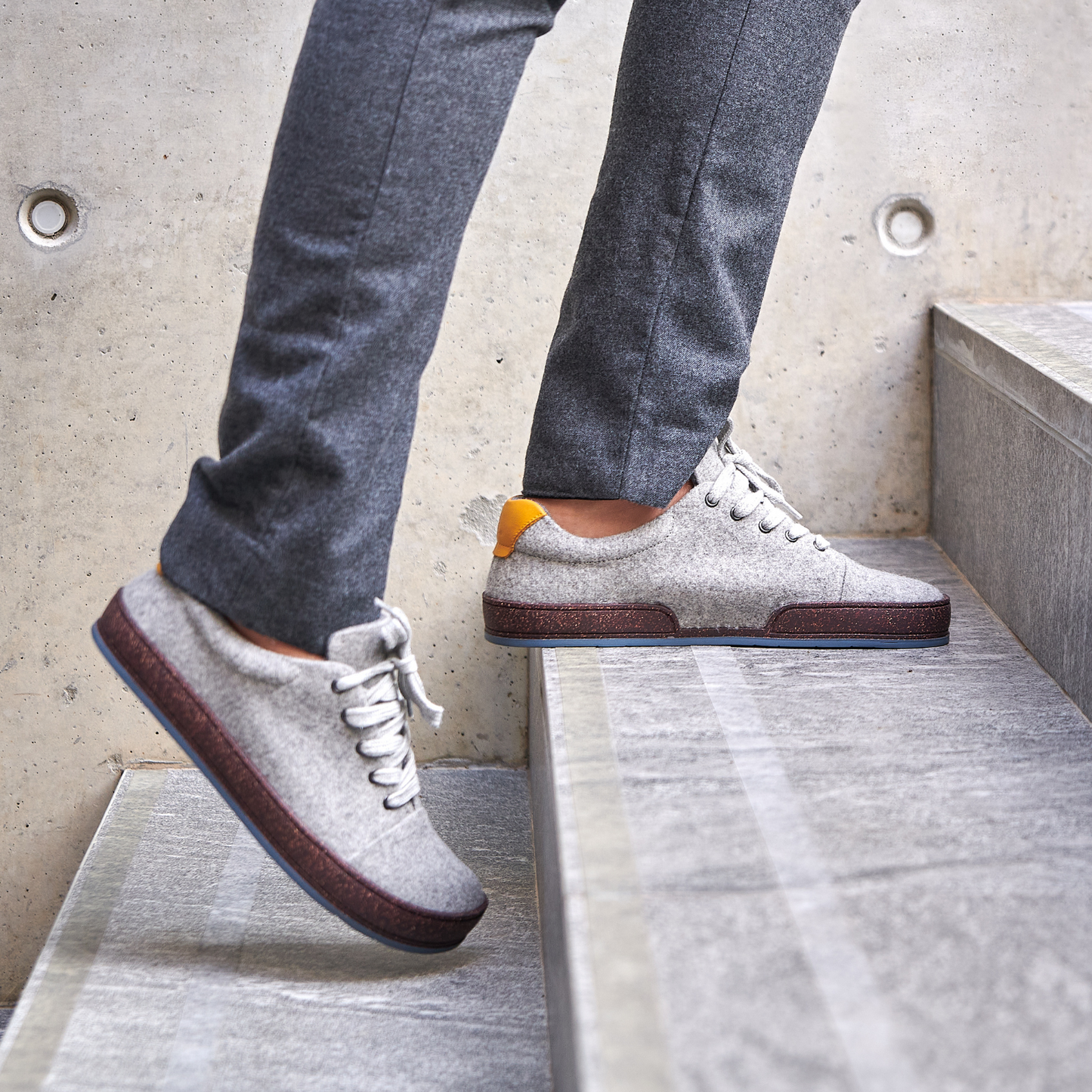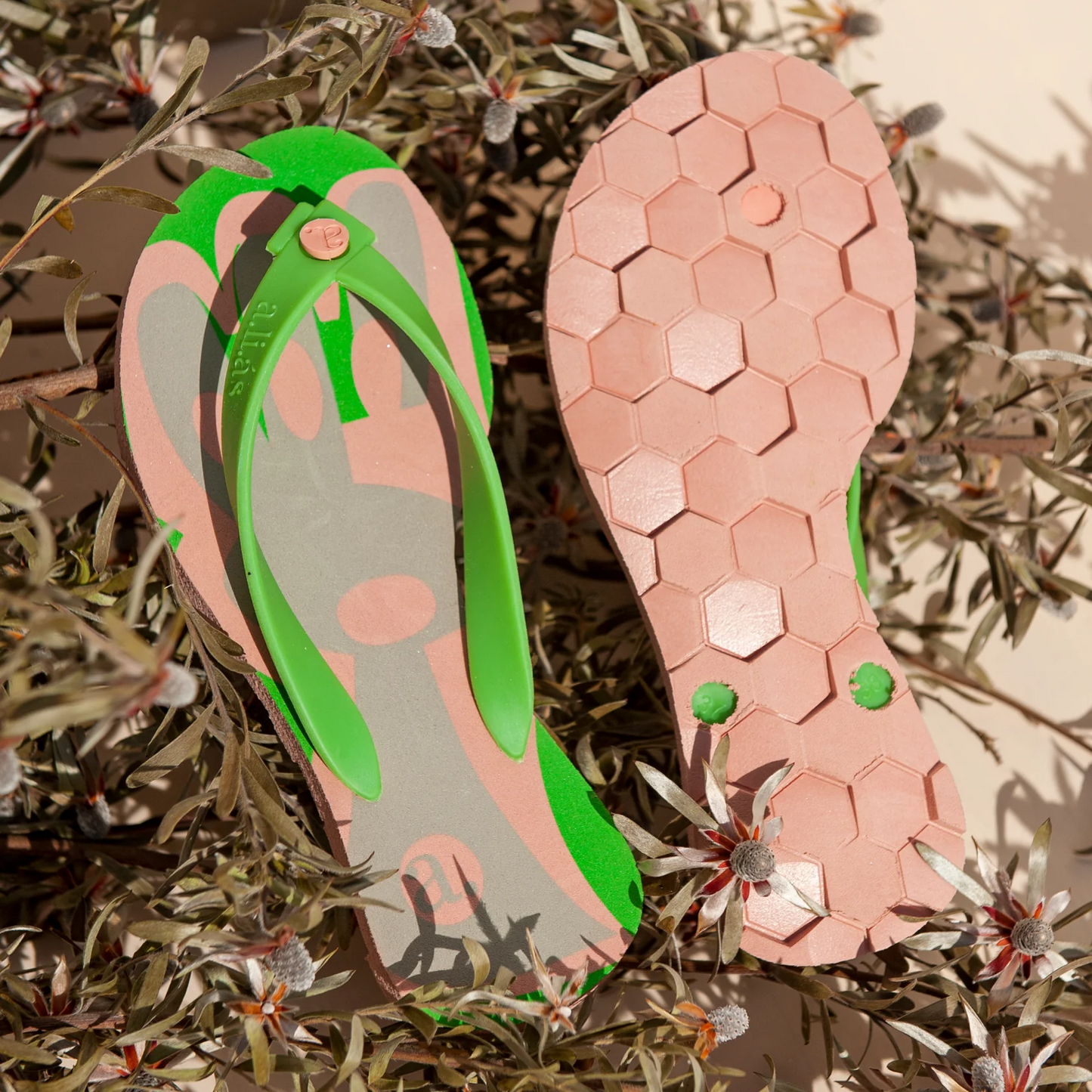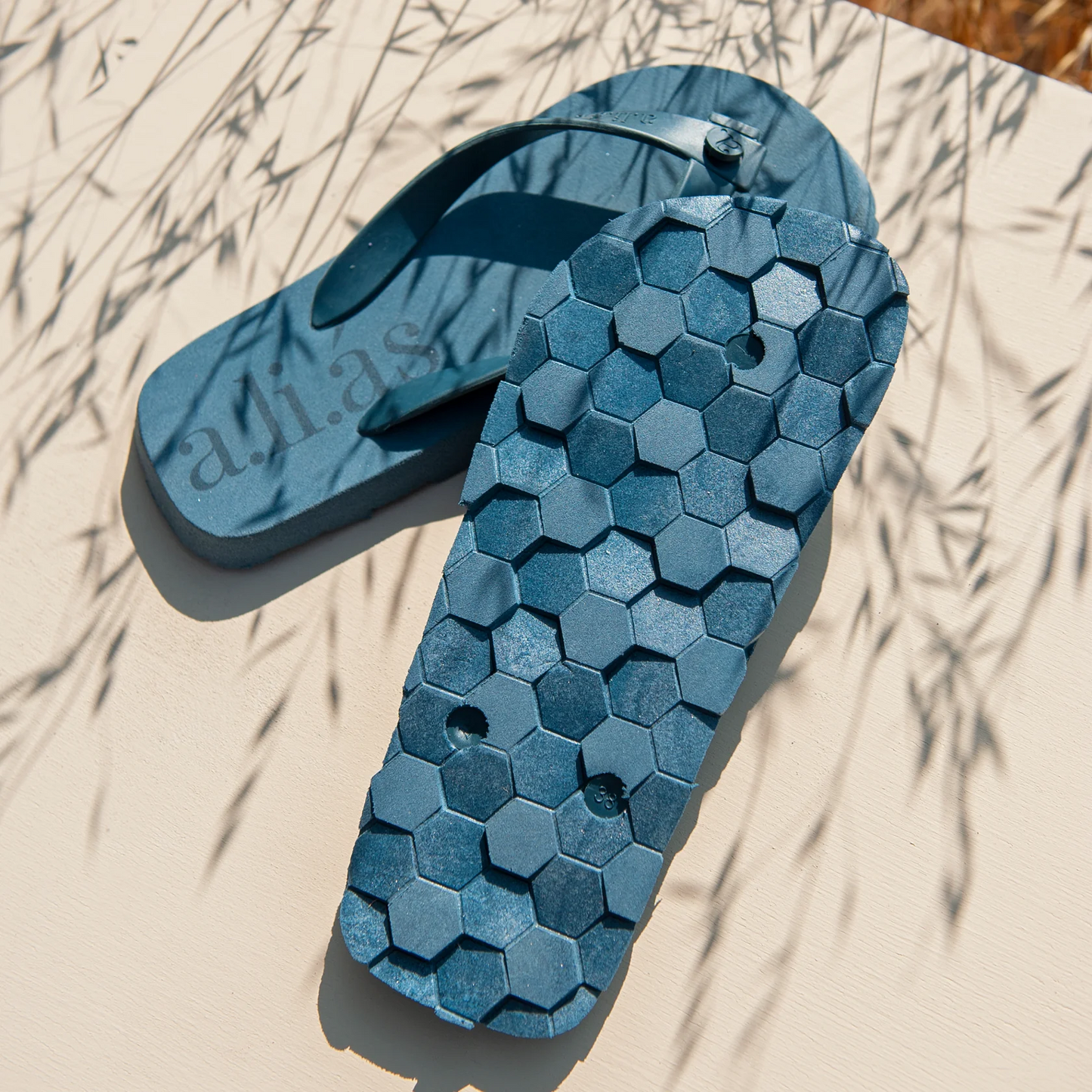
Better materials, smaller footprint

Bio Leather is a unique, high-quality material developed over years of innovation. Crafted locally in Ovar, Portugal, it is tanned with natural extracts from Acacia and Mimosa trees, entirely free from metals and harmful chemicals.
The rich colour palette comes from natural dyes that evolve with time, giving each piece a distinctive character. Soft yet durable, this remarkable leather is fully biodegradable, breaking down completely in under 30 days. The final product is also compostable, contributing to the production of fertilisers. Additionally, Bio-Leather articles are anti-allergenic, making them especially suitable for footwear.

A lightweight, breathable fabric with a textured, washed finish, perfect for warm-weather comfort. Made from a blend of jute and cotton—both natural and renewable materials—it reflects our commitment to sustainability.
Jute is a fast-growing, pesticide-free fiber that requires minimal resources. Durable and naturally UV-resistant, it provides insulation and enhances resilience—making it ideal for footwear.
Cotton, prized for its softness and breathability, is used in this fabric in a blend of organic cotton (grown without synthetic pesticides), recycled cotton (repurposed from textiles to reduce waste), and virgin cotton - for added strength and durability.

Burel is a high-quality wool fabric, produced on Portugal’s Serra da Estrela, according to tradicional processes. Made from 100% sheep's wool on ancestral looms, it boasts high tensile strength, resisting breakage, pressure, and light exposure.
This premium natural material is durable and robust. With a remarkable water resistance of 98.5%, Burel absorbs moisture efficiently, drying quickly and effortlessly. With a remarkable water resistance of 98.5%, Burel absorbs moisture efficiently, drying quickly and effortlessly. It insulates against heat and cold, while its fast-drying, dirt-repellent nature ensures enduring charm in any setting. It ages gracefully, and dyes very easily, allowing the dyeing process to be more sustainable.

Cotton—soft and highly breathable—is the most widely used natural fiber in the world. Eco-cotton generally refers to cotton that is grown or processed more sustainably than conventional cotton.
We source our cotton from trusted partners within the Better Cotton Initiative (BCI)—a remarkable collaboration of forward-thinking individuals and organizations dedicated to making a positive impact on our planet. BCI works closely with cotton farmers to promote sustainable farming practices, ensuring that any cotton carrying their endorsement is grown in an environmentally responsible way.
Our commitment to sustainability extends even to the dyes we use. The carefully curated color palette we use is the result of extensive research, and all dyes comply with the OEKO-TEX STANDARD 100, a globally recognized certification for safety and sustainability.

Rubber is a renewable and recyclable resource, harvested from latex—the milky sap extracted from certain trees and plants. This process allows for continuous harvesting without harming the trees. The majority of the world's natural rubber comes from Hevea brasiliensis, commonly known as the rubber tree.
Our soles are crafted from rubber, chosen for its natural grip, water resistance, lightness, and exceptional durability. To further enhance sustainability, we incorporate a blend of rubber mixed with recycled cork offcuts—a natural, insulating, and durable material, sourced from the outer bark of the Cork Oak tree. This combination not only enhances rubber's lightness and flexibility but also reduces waste, offering a step forward in both comfort and sustainability.

Cork is an extraordinary raw material, sourced from the outer bark of the Cork Oak tree. Its qualities are almost endless—100% biodegradable, recyclable, and renewable, cork is also incredibly light, impermeable, elastic, compressible, resilient, and naturally anti-microbial, making it ideal for footwear.
Native to southwestern Europe and northwestern Africa, the largest collection of Cork Oak trees is found in Portugal. Harvested every nine years without harming the tree, this sustainable practice can continue for up to 200 years. Even more remarkable, a harvested Cork Oak absorbs up to five times more carbon, as it requires extra energy to regenerate its bark. A truly renewable resource in every way.










